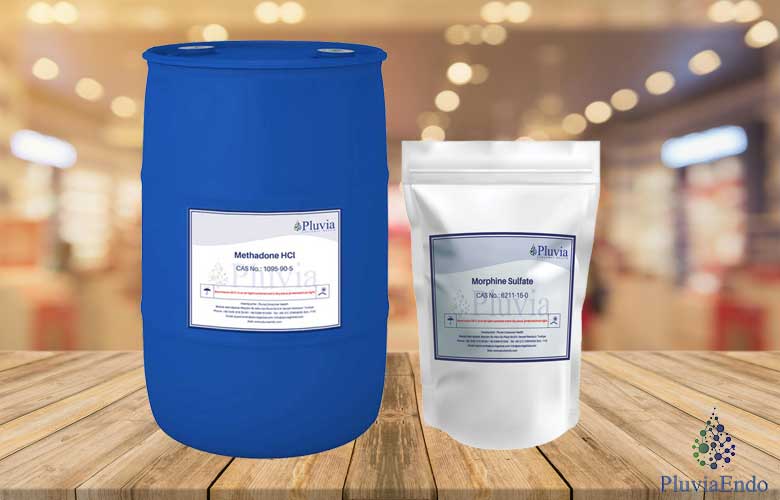Morphine, a potent opioid analgesic, is a cornerstone in the management of severe pain, especially in patients with chronic conditions or post-operative pain. For pharmaceutical suppliers, understanding the intricacies of morphine prescription is crucial to ensure safe and effective distribution, compliance with regulations, and the support of healthcare providers. This article delves into key insights for pharmaceutical suppliers to optimize their role in the morphine supply chain.
The Importance of Morphine in Pain Management
Morphine has wide recognition for its efficacy in alleviating severe pain. For instance, it works by binding to opioid receptors in the brain and spinal cord, blocking pain signals and altering the perception of pain. Its powerful analgesic properties make it indispensable in various medical settings, including:
- Acute Pain Management: Morphine administration is often for acute pain relief following surgeries or traumatic injuries.
Chronic Pain Management: Patients with conditions such as cancer, advanced arthritis, and other chronic illnesses often rely on morphine for ongoing pain control. - Palliative Care: Morphine is a key component in palliative care, providing comfort to patients with terminal illnesses.
- Understanding these applications is fundamental for pharmaceutical suppliers to effectively cater to the needs of healthcare providers and patients.
Morphine Prescription: Regulatory Compliance and Safety
One of the most critical aspects of supplying morphine is ensuring compliance with regulatory standards. Morphine is a controlled substance, and its distribution is tightly regulated to prevent misuse and diversion. So, pharmaceutical suppliers must adhere to the following guidelines:
Licensing and Documentation
- Controlled Substance License: Suppliers must possess the appropriate licenses to handle and distribute controlled substances like morphine.
- Record-Keeping: Accurate and detailed records of morphine transactions, including quantities supplied, recipient details, and dates, are mandatory.
- Audits and Inspections: Regular audits and inspections by regulatory bodies ensure compliance with legal requirements. Suppliers must be prepared for these evaluations at all times.
Safe Handling and Storage
- Secure Storage: Morphine must be stored in secure, locked facilities to prevent theft or unauthorized access.
- Temperature Control: Proper storage conditions, including temperature control, are essential to maintain the efficacy and stability of morphine products.
- Inventory Management: Implementing robust inventory management systems helps track stock levels, minimize wastage, and prevent shortages.
Supporting Healthcare Providers
Pharmaceutical suppliers play a vital role in supporting healthcare providers who do morphine prescription. Furthermore, this support extends beyond merely supplying the medication; it involves providing comprehensive information and resources to ensure safe and effective use.
Education and Training
- Clinical Guidelines: Providing healthcare providers with up-to-date clinical guidelines on morphine use, including dosage recommendations, administration methods, and potential side effects.
- Training Programs: Offering training programs for healthcare professionals on safe prescribing practices, recognizing signs of misuse, and managing opioid addiction.
- Patient Education Materials: Supplying educational materials for patients to understand their treatment, potential side effects, and safe usage practices.
Dosage Forms and Administration
Morphine is available in various dosage forms to cater to different patient needs and clinical scenarios. Thus, suppliers must ensure the availability of diverse formulations, including:
- Immediate-Release Tablets: Used for acute pain relief where rapid onset of action is required.
- Extended-Release Tablets: Designed for chronic pain management, providing sustained pain relief over an extended period.
- Injectable Solutions: Utilized in hospital settings for immediate pain relief.
- Oral Solutions: Suitable for patients who have difficulty swallowing tablets.
Providing these options allows healthcare providers to tailor treatment plans to individual patient needs, enhancing the efficacy and safety of morphine therapy.
Morphine Prescription Monitoring and Risk Management
Pharmaceutical suppliers have a responsibility to monitor the distribution and use of morphine to mitigate risks associated with opioid misuse and addiction. Effective risk management strategies include:
Morphine Prescription Monitoring Programs (PMPs)
- Data Integration: Integrating prescription monitoring programs with pharmacy systems to track morphine prescription in real-time, identify potential misuse, and prevent “doctor shopping.”
- Reporting and Analysis: Regularly analyzing prescription data to identify trends, unusual prescribing patterns, and potential areas of concern. Sharing this data with healthcare providers can aid in early intervention and patient support.
Abuse-Deterrent Formulations (ADFs)
- Innovative Solutions: Developing and supplying abuse-deterrent formulations of morphine that are designed to prevent common methods of misuse, such as crushing or dissolving tablets for injection.
- Education on ADFs: Educating healthcare providers about the benefits of abuse-deterrent formulations and encouraging their use in patients with a higher risk of misuse.
Collaborative Efforts
- Partnerships with Healthcare Providers: Collaborating with healthcare providers, pharmacists, and regulatory bodies to promote safe prescribing practices and effective pain management strategies.
- Community Outreach: Engaging in community outreach programs to raise awareness about opioid misuse, addiction prevention, and the safe use of prescription opioids.
Morphine Prescription: Ensuring Quality and Efficacy
Quality assurance is paramount in the pharmaceutical industry, particularly for controlled substances like morphine. Therefore, suppliers must implement stringent quality control measures to ensure the safety and efficacy of their products.
Good Manufacturing Practices (GMP)
- Compliance with GMP: Adhering to Good Manufacturing Practices to ensure that morphine production is consistent and control of it is according to quality standards.
- Quality Control Testing: Conduct rigorous quality control testing at various stages of production to detect and eliminate any potential defects or contaminants.
Product Traceability
- Batch Tracking: Implementing batch tracking systems to ensure complete traceability of morphine products from production to distribution. This is essential for identifying and addressing any quality issues that may arise.
- Recall Procedures: Establishing efficient recall procedures to swiftly address any potential safety concerns and remove affected products from the market.
Conclusion
Understanding morphine prescription is essential for pharmaceutical suppliers to ensure the safe, effective, and compliant distribution of this vital medication. Additionally, by adhering to regulatory standards, supporting healthcare providers, and implementing robust monitoring and risk management strategies. Also, they maintain stringent quality control measures. So, suppliers can play a pivotal role in optimizing pain management and enhancing patient care.
Pharmaceutical suppliers like Pluvia Endo, who are committed to excellence in the production and distribution of narcotic APIs such as Morphine Sulfate, can significantly contribute to the well-being of patients and the overall effectiveness of pain management protocols. Through continuous education, collaboration, and innovation, we can collectively address the challenges associated with opioid medications and promote safer, more effective treatment options for those in need.







